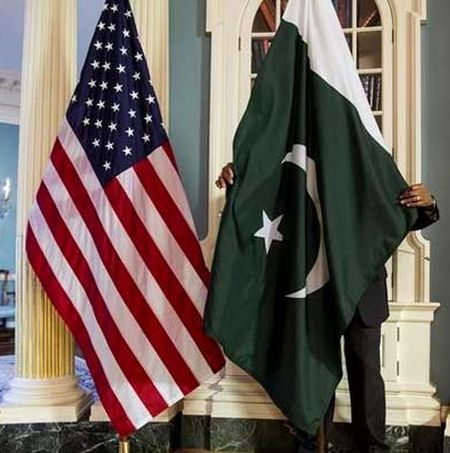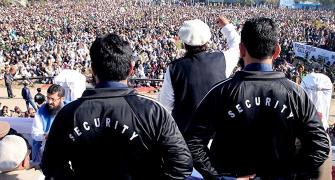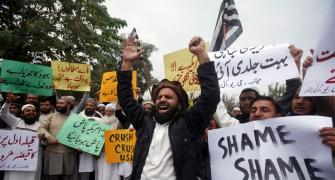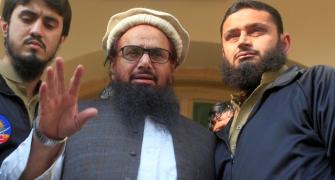 The Trump administration has suspended more than a decade-long military training programme of Pakistani personnel at United States institutions, a media report said on Saturday, days after Islamabad and Moscow signed an agreement to allow Pakistani troops to receive training at the Russian defence centres.
The Trump administration has suspended more than a decade-long military training programme of Pakistani personnel at United States institutions, a media report said on Saturday, days after Islamabad and Moscow signed an agreement to allow Pakistani troops to receive training at the Russian defence centres.
Pakistan and Russia signed an agreement on Tuesday at their first Joint Military Consultative Committee meeting in Rawalpindi during which the two sides discussed the present status of the bilateral defence relations and agreed that Pakistani troops will receive training at the Russian military training institutes.
The relations between Pakistan and the US nosedived this January after US President Donald Trump accused Islamabad of giving nothing to Washington but “lies and deceit” and providing “safe haven” to terrorists.
The US Congress also passed a bill to slash Pakistan’s defence aid to $150 million, significantly below the historic level of more than $1 billion per year.
The US military institutions are struggling to fill the 66 slots they had kept aside for officers from Pakistan for the next academic year, as the Trump administration refused to provide funds for their training, the Dawn newspaper reported, quoting official sources.
The fund for the training of Pakistani officers came from the US government’s International Military Education and Training Programme but no funds were made available for Pakistan for the next academic year, it said.
The suspension of the training first became apparent when the US National Defence University in Washington, which has had reserved seats for Pakistani officers for more than a decade, told the outgoing Pakistani officers that the varsity has been asked to fill the positions for the next year with officers from other nations.
The NDU is one of several US military institutions that train officers from Pakistan.
The Trump administration had announced early this year that it was suspending security assistance to Pakistan over differences on Afghanistan but indicated that training programmes for military officers will continue.
The cancellation of slots kept aside for Pakistani officers, however, shows that the suspension now also applies to training programmes, the report said.
Pakistani officers have been receiving military training and education in the US since early 1960s, which were suspended in the 1990s but restored after the September 11, 2001 terrorist attacks.
Previously, it was not just Pakistan that valued the training and education of its officers received in the US.
US military institutions also proudly owned training officers who assumed senior positions after returning home, such as former Army chief General Ashfaq Parvez Kayani, and Lt Gen Naveed Mukhtar, the current director general of the Inter-Services Intelligence, the report said.
“This is an unfortunate and ultimately counterproductive decision. There are certainly ways to send a strong message to Pakistan, but this isn’t the way to do it,” Michael Kugelman, an expert of Pakistan affairs at the Washington think tank ‘the Wilson Center’, was quoted as saying in the report.
“This move could squander what little goodwill and trust remains in the military-to-military relationship, and it reduces the likelihood that Pakistan will act in the ways that Washington would like it to act,” Kugelman said.
He said there was a long history of educational and training cooperation between the US and Pakistani militaries, and this cooperation had withstood the pressures and tensions of the relationship.
“The fact that these educational exchanges have suffered this blow now suggests that the relationship could be entering into a new phase where even the supposedly safe and protected dimensions of the relationship can become casualties of wider tensions and ill will,” Kugelman said.
So far there is no response from Pakistani official to this move by the US.
Pakistan’s defence ties with Russia have moved past the bitter Cold War hostilities in recent years and the chill in the relations between Pakistan and the US has further pushed the country towards Russia and China.
Pakistan has shown eagerness to build military-to-military level ties with Russia.
Earlier this year, the then foreign minister Khawaja Asif visited Moscow during which the two sides agreed to set up a commission to boost military cooperation.
Russia has over the past three years provided four Mi-35M combat and cargo helicopters to Pakistan and the militaries of the two countries also held joint drills codenamed ‘Friendship’










